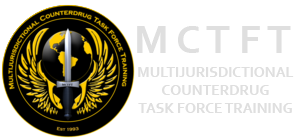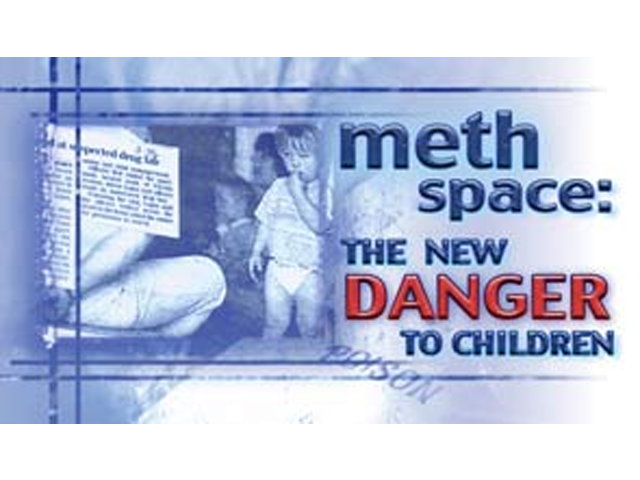During this hour-long broadcast, we’ll hear how the dangers and health effects of meth and meth labs continue to lurk even when the chemicals are gone, especially for the children. We’ll visit a Kansas family that intervened in the lives of drug endangered children and now has a house full of love. See how teamwork pays off for Salt Lake City’s police department when there are children to think about. See how teamwork can really pay off when there are children to think about. It’s the small things law enforcement can do to help the little ones, and it doesn’t always involve handcuffs or weapons.
Learning Objectives:
- Learn how drug use and manufacture effects children
- Find out what responsibilities law enforcement officers have to the children at drug scenes
- See how teamwork between social service providers and law enforcement can make a difference
Originally Aired: February 21, 2008
Panelists
Holly Hopper
Chair of the Kentucky Alliance for Drug Endangered Children
Hopper is the Principle Investigator of the Appalachian Regional Commission-funded Drug Endangered Child Training Network, located in the University of Kentucky, College of Public Health, Center for Prevention Research. She has developed meth land safety program “Walk Your Land”and home visitor safety program, “Meth: Too Close to Home”She holds a Bachelor of Science degree in Family Studies and a Master of Rehabilitation Counseling degree from the University of Kentucky and is currently pursuing a Public Health Doctorate. She has worked with children, adults, and families in a variety of clinical and community settings. Holly has spoken nationally on issues related to drug endangerment of children and sees proper identification and care of children affected by adult drug activity key to impacting the impact of substance abuse on the next generation of Kentuckians.
Ronald V. Mullins
Federal Law Enforcement Training Center, Formerly with the National Alliance for Drug Endangered Children
Ron Mullins is currently employed as an instructor with the Federal Law Enforcement Training Center in Artesia, New Mexico. For two years previous to his move to Artesia, he served as the National DEC Training Coordinator located in San Diego California. As the National DEC Training Coordinator, he was tasked with coordination of training throughout the nation promoting the multi-disciplinary approach to children removed from drug labs and other drug environments. Ron has lectured to over twenty thousand people in 40 states over the last four years. Ron completed six projects for ONDCP at the White house. Mullins has appeared on many television and radio broadcasts including CNN Anderson Cooper Show.
He has a Law Enforcement background, retiring in 2004 from the New Mexico State Police. He served as the Clandestine Laboratory Enforcement Team Commander for the last six years of his career. He taught Clan Lab Safety and Awareness to over 3000 first responders and Child Protective caseworkers.
In 1994 he received the meritorious reward from the Governor of New Mexico for his efforts if the formulation of the Clandestine Laboratory Enforcement team and being instrumental in changing the precursor laws as well as amending the child abuse law to include making it a third degree felony to subject a child to the volatile toxic environment of a drug lab.
He is a member of the New Mexico State Police Association, California Narcotics Association, and Clan Lab Investigators Association. He is also a member of the National Methamphetamine Chemical initiative and the tri-state precursor committee.
Tim Schultz
Special Agent, Wisconsin Department of Justice, Division of Criminal Investigation, Narcotics Bureau
Tim Schultz has been in law enforcement since 1975. From 1975-1976 he served as a Detective in the Juvenile Bureau of the Kootenai County Idaho Sheriff’s Department. He has been with his present employer since 1976 and is now a Special Agent with the Wisconsin Department of Justice, Division of Criminal Investigation, Narcotics Bureau. Stationed in Eau Claire, Wisconsin, he works the northwest corner of the state as it relates to all controlled substances and the whole state at it relates to clandestine laboratories.
Schultz was among the first law enforcement officers in Wisconsin to become Clandestine Laboratory certified by OSHA and DEA in 1991. He became the State of Wisconsin’s expert in methamphetamine, ecstasy and clandestine laboratories and helped developed the statewide plan to attack this problem. He is the state representative to the Clandestine Laboratory Investigator’s Association Board of Directors. He has conducted drug presentations in 27 states and one foreign country. He is also on the NCAA approved speakers list to provide drug education to NCAA college and university sports teams in accordance with NCAA Health and Safety Program guidelines.
Schultz earned a Bachelors of Science Degree (1974) from Indiana State University with a major in Criminology. He is a certified USEPA Hazardous Material Technician and an OSHA and DEA certified Clandestine Laboratory Hazardous Material Technician and Confined Space certified. Schultz has received commendations from the United State Attorney’s Office, Western District of Wisconsin; the Wisconsin Department of Justice; and the Wisconsin Narcotics Officer’s Association, and has testified as an expert witness in both federal and state court in controlled substance cases.

